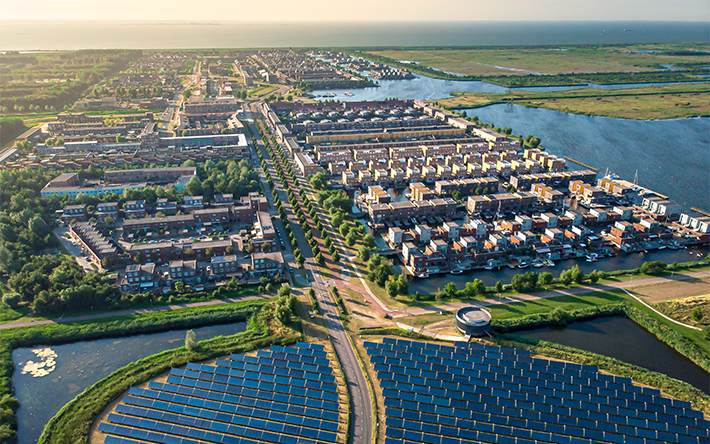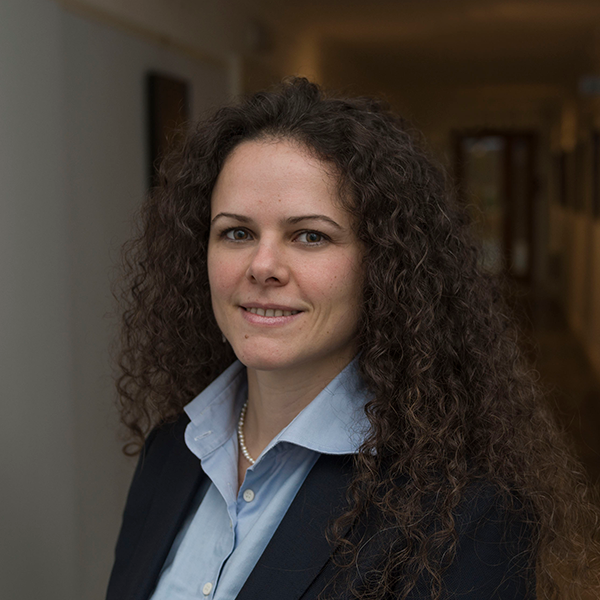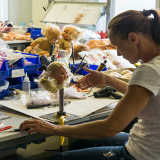
Främja social sammanhållning och konvergens
Att främja social sammanhållning och konvergens är en av de sex huvudsakliga verksamheterna i Eurofounds arbetsprogram för perioden 2021–2024. Eurofound kommer att fortsätta att arbeta som ett expertcentrum för övervakning och analys av de viktigaste trenderna och bestämningsfaktorerna för att uppnå uppåtgående konvergens i levnads- och arbetsvillkoren samt stärka den ekonomiska och sociala sammanhållningen i EU. Covid-19-pandemin utgör en utmaning utan motstycke för EU:s ekonomiska och sociala motståndskraft och visar hur sårbara alla de framsteg i konvergensmönstren som redan har gjorts är.
Over the next four years, Eurofound will provide an important insight into the challenges and prospects in the area of social cohesion and convergence in the EU, helping to ensure its economies and societies are resilient to future shocks. Eurofound kommer att utvidga tidigare års arbete med temat uppåtgående konvergens samt lägga särskild tonvikt på den potentiella ökningen av nya ojämlikheter bland medborgarna och på hur man ska hantera de ökade utmaningarna för den sociala sammanhållningen som kommit till följd av krisen. Eurofound kommer regelbundet att rapportera om tendenser inom uppåtgående konvergens inom den socioekonomiska dimensionen, liksom inom de dimensioner som anges i den europeiska pelaren för sociala rättigheter på medlemsstatsnivå och regional nivå, samtidigt som EU jämförs med andra utvecklade länder.
I samband med undersökningen av drivkrafterna och konsekvenserna av ekonomisk och social konvergens kommer Eurofound att uppmärksamma en rad faktorer, såsom sociala investeringar, rörlighet och institutionella ramar, reglering, välfärdssystem, institutionell kvalitet och offentliga tjänster , social dialog och strukturreformer. Forskningen ska undersöka hur effektivt EU:s svar på pandemin har varit när det gäller ekonomisk och social konvergens. Den kommer också att ta hänsyn till situationen i euroområdet och fokusera på den roll som processerna för förhållandet mellan arbetsmarknadens parter har när det gäller att påverka konvergensen.
Eurofound kommer att undersöka tendenserna och drivkrafterna till social sammanhållning i Europeiska unionen, särskilt hur covid-19-pandemin har förvärrat befintliga ojämlikheter eller utlöst nya som påverkar samhället i största allmänhet eller specifika grupper av medborgare. Analysen kommer att inriktas på ekonomiska, sociala och hälsorelaterade skillnader, både på arbetsmarknaden och när det gäller tillgång till och kvalitet på viktiga varor och tjänster såsom hälso- och sjukvård , bostäder, utbildning och socialt skydd . Kopplingen mellan ojämlikheter, institutionellt förtroende och missnöje kommer att undersökas. Andra intresseområden är migration , integration och sociala spänningar.
Forskningsresultaten från denna verksamhet kommer att bidra till arbetet inom olika avdelningar hos Europeiska kommissionen och sysselsättningskommittén (Emco), kommittén för socialt skydd (SPC), ekonomiska och finansiella kommittén (EFC), rådet och Europaparlamentet, bland annat i förhållande till den europeiska planeringsterminen.
”Covid-19-krisen har återigen satt begreppet uppåtgående konvergens i centrum för den politiska debatten... Uppåtgående konvergens är viktig för unionens stabilitet. Om inte löftet om uppåtgående konvergens uppfylls riskerar man att undergräva unionens funktionssätt och skapa politiskt missnöje med Europeiska unionens projekt.”
Massimiliano Mascherini, chef för enheten för socialpolitik




























